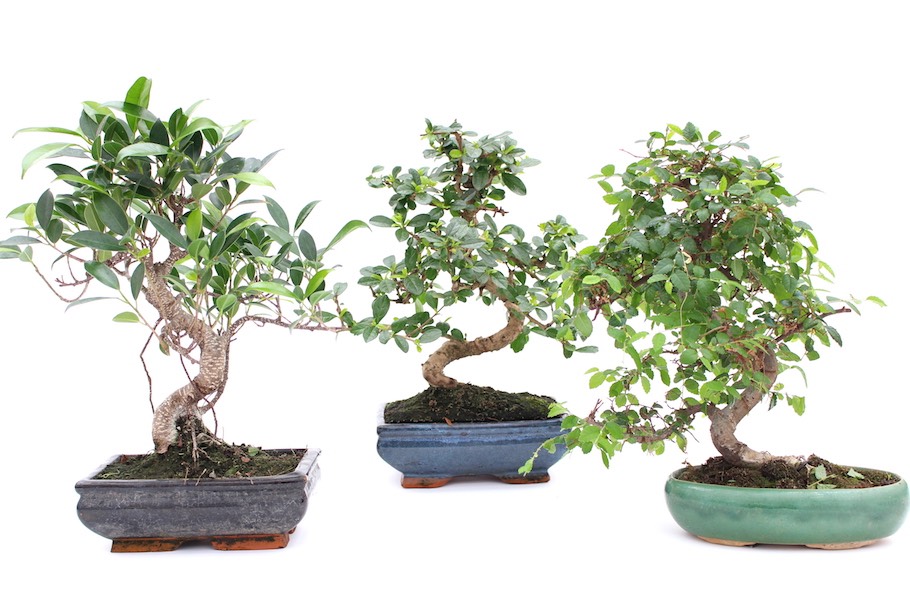Welcome to the world of bonsai! Bonsai trees are small and beautiful. They are perfect for indoor decoration. If you are a beginner, don’t worry. This guide will help you start your bonsai journey.
What is Bonsai?
Bonsai is an art form. It involves growing small trees in containers. The goal is to create a mini tree that looks like a big tree.
Why Choose Indoor Bonsai Trees?
Indoor bonsai trees are easy to care for. They don’t need a lot of space. You can grow them in your living room or office. They also add a touch of nature to your home.

Credit: www.bonsaiempire.com
Best Indoor Bonsai Tree Species for Beginners
Here are some indoor bonsai tree species that are perfect for beginners:
- Ficus Bonsai
- Jade Bonsai
- Chinese Elm Bonsai
- Japanese Maple Bonsai
- Juniper Bonsai
Ficus Bonsai
Ficus bonsai trees are very popular. They are easy to care for and grow well indoors. Ficus trees have small leaves. This makes them perfect for bonsai.
Jade Bonsai
Jade bonsai trees are also easy to care for. They have thick, green leaves. Jade trees don’t need a lot of water. This makes them perfect for beginners.
Chinese Elm Bonsai
Chinese Elm bonsai trees are very hardy. They can tolerate different conditions. Chinese Elm trees have small, serrated leaves. They look very beautiful as bonsai.
Japanese Maple Bonsai
Japanese Maple bonsai trees are very beautiful. They have colorful leaves that change with the seasons. Japanese Maple trees need a bit more care but are worth it.
Juniper Bonsai
Juniper bonsai trees are very popular. They are easy to shape and care for. Juniper trees have needle-like leaves. They look like mini pine trees.
:max_bytes(150000):strip_icc()/bonsai-tree-getty-0723-c656729073b04f46bd45a9bbee0d7f78.jpg)
Credit: www.marthastewart.com
Basic Care Tips for Indoor Bonsai Trees
Here are some basic care tips for indoor bonsai trees:
Watering
Watering is very important. Bonsai trees need water to grow. Make sure the soil is moist but not soggy. Overwatering can harm the tree.
Lighting
Indoor bonsai trees need light. Place them near a window. They need at least 4 hours of sunlight each day. If you don’t have enough natural light, use a grow light.
Pruning
Pruning helps shape the bonsai tree. Use small scissors to trim the leaves and branches. Prune regularly to keep the tree in shape.
Repotting
Repotting is important for bonsai trees. It helps refresh the soil and gives the roots more space. Repot your bonsai tree every 2-3 years.
Fertilizing
Fertilizing helps the bonsai tree grow. Use a balanced fertilizer. Apply it once a month during the growing season.
Common Problems and Solutions
Here are some common problems and solutions for indoor bonsai trees:
| Problem | Solution |
|---|---|
| Yellow Leaves | Check the watering. Too much or too little water can cause yellow leaves. |
| Leaf Drop | Make sure the tree is getting enough light. Check for pests. |
| Slow Growth | Fertilize the tree. Make sure it is getting enough light and water. |
Frequently Asked Questions
What Are The Best Indoor Bonsai Trees?
Ficus, Jade, and Chinese Elm are top choices. They’re hardy and perfect for beginners.
How Often Should I Water Bonsai Trees?
Water when the soil feels slightly dry. Avoid overwatering to prevent root rot.
Do Bonsai Trees Need Direct Sunlight?
Yes, they need bright light. Place them near a sunny window for optimal growth.
Can Bonsai Trees Improve Indoor Air Quality?
Yes, they can help purify air by absorbing pollutants and releasing oxygen.
Conclusion
Indoor bonsai trees are a wonderful hobby. They are beautiful and relaxing to care for. Start with an easy-to-care species. Follow the basic care tips. Enjoy the beauty of your mini tree!

